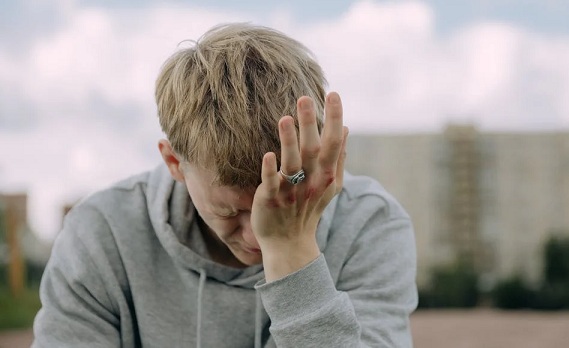Physical pain is an inevitable part of life. Whether it’s a small, nagging ache or a sharp, sudden pain, it occurs to every person at one point or another. Once you’ve experienced pain yourself, it can become difficult to know how to cope with it. Here are some tips.
Do not suffer in silence
Pain is a signal that something is wrong and should never be ignored. As soon as you feel pain, alert someone around you. Talk about it and share how you feel. This will help reduce stress from internalizing your emotions and allow you to focus on the pain rather than feeling embarrassed or uncomfortable. When pain is particularly severe, it should be treated by a doctor promptly. Over the counter medications should only be taken if absolutely necessary. If your pain does not subside or begins to get worse, you need to see a doctor as soon as possible so that other measures can be taken to alleviate the issue. There are doctors that focus on the pain that hasn’t been detected yet, but it still happens, and they are called osteopaths. There is even an Osteo Diagnostic Platform online that helps you find an osteopath. This will help you figure out the best course of action.
What do osteopaths do?
Osteopathic treatment aims to detect and treat the causes of pains rather than just the symptoms. Osteopaths will treat patients who suffer from acute, chronic, or recurrent pain through a variety of different techniques such as manipulations and mobilization of certain parts of the bones as well as soft tissues such as muscles and ligaments. Osteopaths may also prescribe exercises to help strengthen weak or injured areas so that they can properly heal. Treatments may be manual or use other physical agents such as heat and cold. Receiving osteopathic treatment can relieve many types of pain experienced by either removing tension and stress around painful joints and muscles, encouraging blood flow into those areas to encourage healing or modifying body structures to restore balance within the body. Osteopathy has been proven to be a useful adjunct for patients who suffer from long-term back pain, arthritis, and fibromyalgia.
Focus on the positive
When you’re in pain, it’s easy to feel sad or depressed. However, it’s important to maintain a positive mood and not let your emotions get the best of you. Do whatever makes you happy- read a book, listen to music, watch TV- anything that will make you forget about your aches for a while. Refuse to wallow in self-pity, because this will strain your body even more. If pain is caused by an injury, focus on the fact that it will heal over time. Focus on regaining strength and performing everyday tasks again if they were hindered by injury. If there isn’t much hope of recovery, then just find something else to do during that time period. When you’re in pain, it’s easy to neglect your physical needs and focus on the discomfort instead. However, this approach is very dangerous because ignoring your aches can lead to more severe health issues down the road. This includes everything from eating right to getting enough sleep. If you are not engaging in healthy habits, then get started now so that when pain occurs, you will be completely equipped to deal with it properly.
How can you stay positive even when in physical pain?
Pain is one of the most common reasons why people visit doctors, and it can greatly affect your mood. A large part of dealing with pain is remaining positive, regardless of the situation. A good way to combat negative thoughts is by exercising your mind and body. For example, try jogging or lifting weights. One study even found that cooking can help reduce stress. Most importantly, remember to stay hydrated- drinking at least 6 glasses of water a day keeps you more energized and upbeat. Social support is another huge component of helping you feel better about your physical condition. Research shows that having someone who supports you makes it more likely for you to have lower blood pressure while experiencing pain. This means being around family members or close friends also has some health benefits in itself!
Avoid bad habits like smoking and drinking
In addition to healthy habits, staying healthy means avoiding bad ones. This includes being aware of what you eat and drink. Even if you don’t have much time to prepare nutritious meals, try steaming vegetables or making a salad in advance, so you can grab them quickly when hunger strikes. Learn which foods can help prevent certain types of pain, such as eating bananas for migraines or oranges to get rid of kidney stones. Avoiding bad habits will also reduce your risk for many health problems, such as lung cancer from smoking. Alcohol is another vice that can indirectly cause pain in your body. Having too much alcohol can increase the likelihood of stress and anxiety. In addition, researchers have found a link between binge drinking and chronic body pain.
When pain rears its ugly head, try these tips out before panicking or making any rash decisions about your health. Remember that everyone experiences some form of pain at one point or another, whether it’s mild or severe! Being prepared for it is always a plus and can help you cope with it better.

















